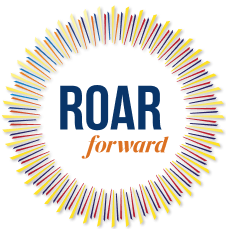You have a very strong reinvention ability. In your first career, you went from the traditional consumer print media world (Vogue, Vanity Fair) into a deep digital experience with a b2b enterprise software company and now as a top executive coach. Can you share with us how you have strengthened your reinvention muscle?
I’ve had more than one career reinvention, and certain mental muscles have had to be exercised and/or strengthened each time. I went from bartending in NYC in the late 80s/early 90s (until the age of 31) to working on the launch of Out Magazine in ad sales. At the time, I didn’t know how to use a fax machine, let alone email and the burgeoning technology of the internet. I then learned how important it was to be comfortable with the uncomfortable; having a “learner” mindset was key to my early career but I would suggest it for today as well.
When I consider those early days and the excitement generated by introducing Corporate America to the LGBTQ market, I must note that it required a certain amount of self-empathy. This was before Will & Grace and Ellen’s coming out, so imagine the feeling of vulnerability going into a Fortune 100 company and discussing “gay” marketing in 1991. Leaning into that vulnerability was a daily experience, and it strengthened me as a person. I then learned the importance of challenging oneself regularly, to try something you are not an expert at. It’s both humbling and rewarding and can build confidence in the long run.
Summoning resiliency is also key. I first left Conde Nast in 2004 to open a dog rehabilitation and training center in NYC with my partner. It was my first entrepreneurial endeavor. There was a lot of learning and trial by error, and I would say resiliency was key to that four-year business’s success. I’ve always loved dogs, and being a part of something so soulfully enriching was a calling. We ultimately lost our lease four years later, but not before I was recruited back to Conde Nast to work freelance on the launch of Men’s Vogue (which, quite frankly, was a little insane to even consider because I was subsequently working seven days a week between the two businesses). But I said yes for a few reasons, not the least of which I missed some things in my day-to-day work life: ways of exercising some core skills like creative problem-solving, strategy, and managing adults. (Managing 18- to 20-year-olds is not the same as managing seasoned sales and marketing professionals.) All that said, I believe doing regular self-inventory throughout one’s career is super important. It’s key to re-engage regularly with what feels right for you versus what you think is right for you. These are not the same things.
Ultimately, moving to a b2b start-up and SaaS platform from a traditional print media background was no different than my “first time” in other roles. In each situation and each career pivot, I needed to have a learner mindset, rediscover my core strengths, and harness them to succeed. It took resiliency. And lots of self-kindness, which took some practice. Like most people, I tend to focus on what I could have done better or differently. But I am aware of that and am getting better at that as well.
For the past 6 years, you have worked as an executive coach for individuals and businesses in multiple sectors, including fashion/retail, technology, arts, entertainment, and more. What are one or two of the top messages you give clients as they begin a journey with you?
1) It’s okay to not know the answer to where you are going or what you want to do next. Pay attention to what feels right for you. Be okay with being in the process. And it’s definitely okay to change your mind throughout your process.
2) You have core character traits that comprise the foundations of your past success. These are common threads. Work to discover, harness, and then focus on them. I have always been relational and enjoyed problem-solving and working with individuals and teams. I got to do that in every iteration of my career, whether bartending in a restaurant, selling ad space, or running my own dog rehab and training business. Now as an Executive Coach, I get to strategize with people on their careers or work with executives on how to optimize their leadership performance or the performance of their team. Same skills, different scenarios.
Individuals over 50 are often looking for their next chapter. That might be in careers, lifestyles, or relationships. What are some key elements for a roadmap to success for someone’s reimagination in the second half of life?
First and foremost, be open to discovery. Much of what got you to success in the first place was born not from training, a degree, one person, or “luck,” but because of key character traits developed way before you ever went down whatever path you originally chose.
Get in touch with your aspirations. What do you want to achieve in the future? How can you make a difference if that is important to you? What are you passionate about?
I’m a big believer in starting from exactly where you are and not doing anything dramatic or reactionary. Build a bridge to the next iteration of you! Create pragmatic, actionable steps to discover what you are curious about. Be bravely ambitious for yourself in the discovery process. Research, have conversations, hire a coach, and talk to old colleagues. Think BIG for you. You have matured, and if you believe you still have contributions to make, then you do!
Be open to stretching yourself outside of your comfort zone. Be open to not being an expert. Be open to possibilities and get in touch with what feels right for you!

